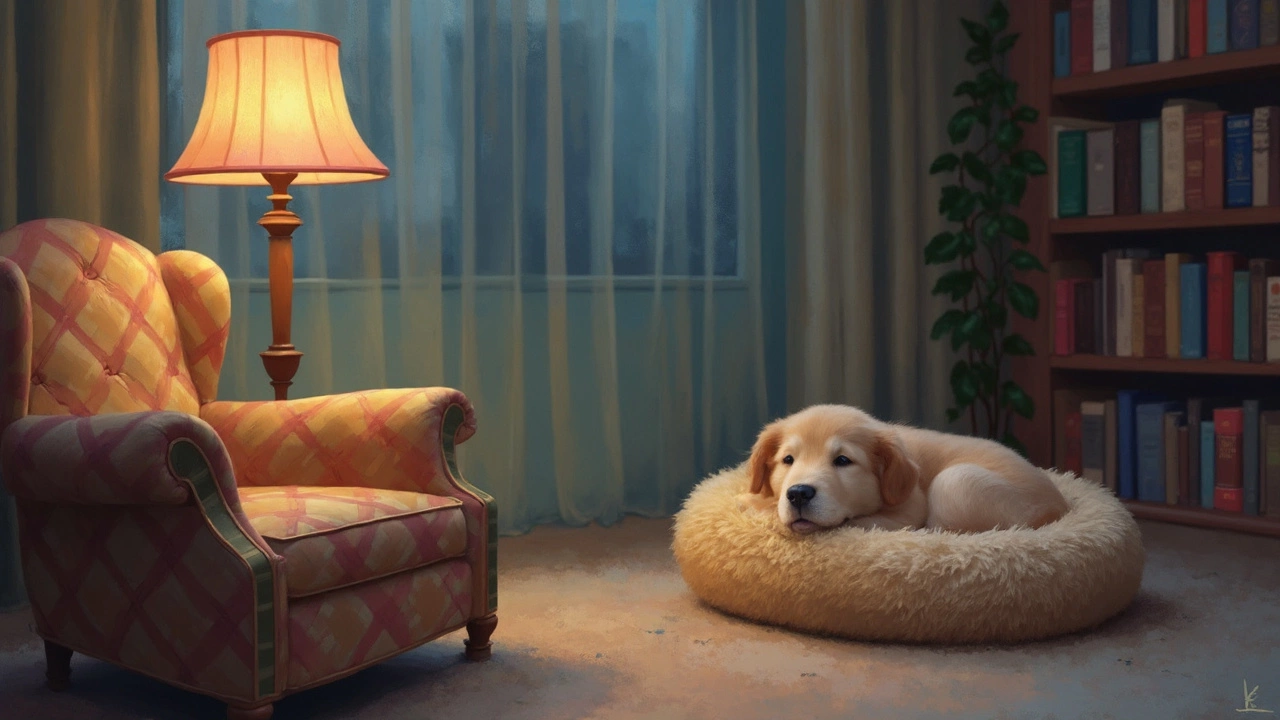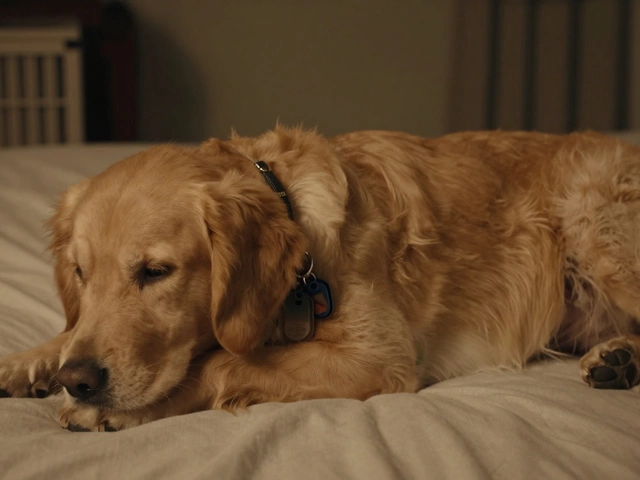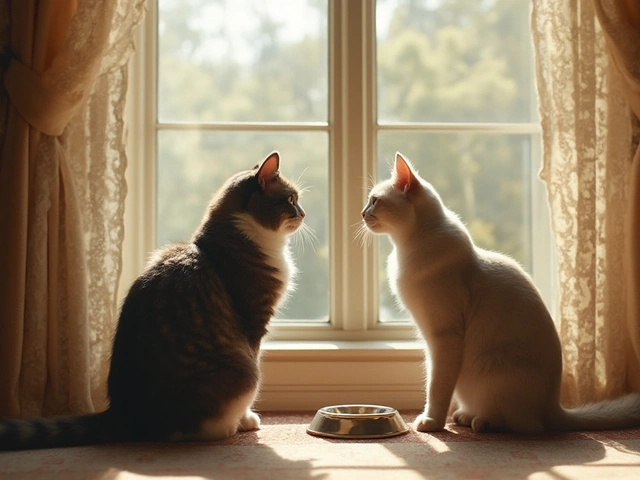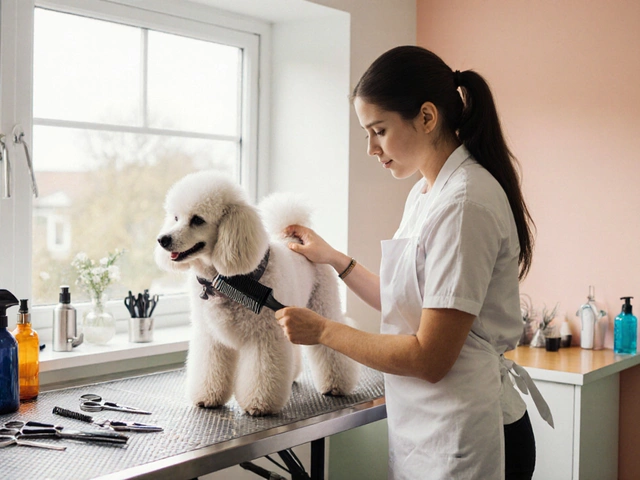Does your new puppy struggle to settle down at night? If you're wondering whether to turn off the light for your puppy when bedtime rolls around, you're not alone. Puppies, like us, have their own preferences and needs when it comes to sleep. Some pups might whine or seem restless if the lighting isn't quite right.
Generally, most dogs are just fine with the lights off. It harks back to their wild ancestors who didn't have the luxury of lamps. Darkness signals bedtime, and it helps regulate your pup's sleep cycle. However, if your puppy is new to your home or if they show signs of anxiety, a small nightlight can be a good compromise. This provides a bit of comfort without quite the same glare as full lighting.
So, figuring out the optimal setting for your furry friend involves observing them and maybe a bit of trial and error. Don't worry; finding out whether your pup prefers lights on or off is just one of the many tiny puzzle pieces that make up puppy care.
- Why Darkness is Important
- Creating a Cozy Sleep Environment
- Potential Hazards of Leaving the Light On
- Training Your Puppy to Sleep in the Dark
Why Darkness is Important
Switching off the lights for your puppy at night might seem like a small decision, but it can have a big impact on their health and happiness. Just like humans, puppies have a natural sleep rhythm that’s regulated by the day-night cycle. Darkness at night signals their body to release melatonin, a hormone that helps them relax and sleep better.
In their wild ancestors’ days, nighttime darkness was the norm. These dogs didn’t have to deal with artificial lighting, and their bodies adapted to using darkness as a cue for rest. This natural routine still exists in your furry friend today, helping them get the rest they need to grow and stay healthy.
Impact on Circadian Rhythm
A puppy's circadian rhythm is influenced by light exposure. When the environment is consistently dark at night, it helps to reinforce their internal clock. This makes sure they are more awake and active during the day and better able to rest at night. Consistency will also reduce the chances of any sleep disorders developing.
Comfort and Security
For puppies, especially during their early weeks in a new home, darkness can provide a sense of security. While it might seem counterintuitive, a dark room reduces distractions. When the lights are off, there are fewer shadows and movements that might catch their eye and stimulate them, making sleep easier and deeper.
However, if your puppy appears to be scared in the dark, which can happen, it's okay to use a dim nightlight as a transitional tool. With time, they usually grow more comfortable sleeping in complete darkness as they become familiar with their new surroundings.
Practical Adjustments
Helping your puppy get accustomed to sleeping in the dark isn't complicated. Here’s a simple checklist:
- Set a consistent bedtime by dimming lights an hour before sleep.
- Ensure their sleeping area is a cozy, quiet spot free from disruptions.
- Monitor your puppy's reactions and adjust spaces and lighting as needed.
Remember, your puppy is relying on you to create an environment that helps them thrive. Keeping the lights low at night does exactly that and can make a world of difference for their sleep quality.
Creating a Cozy Sleep Environment
So, you've decided it's lights out for your new buddy. That's great, but there's more to it than just hitting the switch. Crafting the perfect sleep space can help your puppy settle faster and stay comfortable all night long. Let's chat about how to make bedtime the best time for your furry pal.
Choose the Right Bed
Your puppy's bed is where the magic happens. You want it to be soft enough for comfort but supportive too. A good dog bed has enough padding to protect little joints and a machine-washable cover for easy cleaning. You may want to add a soft blanket, especially something that smells like you, to create a familiar and comforting space.
Consider Location
Where you place your puppy's bed matters. Ideally, pick a quiet corner away from busy hallways or drafty windows. Remember, your pup wants to feel safe, so someplace out of heavy foot traffic is key. Many dog owners find that a spot in the bedroom, where your puppy can sense your presence, works wonders for reducing nighttime stress.
Opt for Soothing Sounds
If your puppy is still anxious at night, consider using a sound machine or playing gentle music. This small addition can help mask outdoor noises that might disturb their sleep. It can also cue your pup that it's time to wind down, promoting a stronger nighttime routine.
Safe Sleep Zone
Ensure the sleeping area is free from anything potentially hazardous. No loose cords, small chewable objects, or strings that could present a danger. Puppies are naturally curious, and a safe environment means peace of mind for you.
In fact, some recent surveys suggest nearly 70% of dog owners let their pups sleep in the bedroom, which supports deeper connection and security for puppies. So, setting up a cozy sleep environment not only aids in developing healthy dog sleep habits but keeps your routine smooth and relaxed.
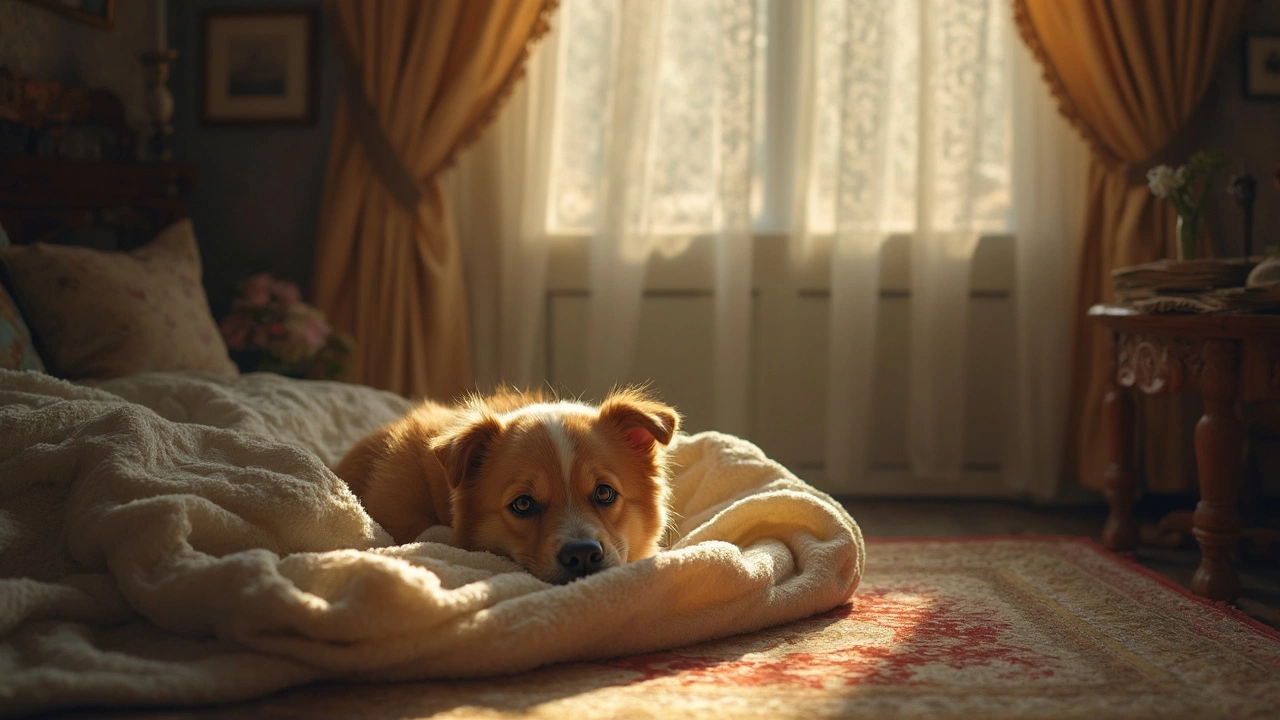
Potential Hazards of Leaving the Light On
Leaving the light on for your puppy overnight might seem harmless, but there are a few downsides you should consider. First off, constant exposure to light can mess up your pup's circadian rhythm, which is their natural sleep-wake cycle. Just like humans, dogs benefit from a regular sleep pattern, and light can disrupt this.
Interfering with Sleep Quality
A 2023 survey of pet owners found that around 30% noticed their dogs were more restless with lights on during the night. Dogs have a natural instinct for darkness when it’s bedtime, and artificial light can trick their brains into thinking it's still daytime. This could lead to poor-quality sleep and a cranky pup.
Energy and Environmental Concerns
It's not just about puppy care; it's also about practical concerns like energy use. Keeping lights on all night drains electricity, adding up to higher bills and a bigger carbon footprint over time. If you're looking for an eco-friendly home, reducing unnecessary lighting is a good step to take.
Behavioral Impact
There’s also the risk of behavioral issues. Constant exposure to light can make some puppies anxious or more hyperactive, even during the daytime. It’s like kids after a night of watching TV - they might be more tired or grumpy the next day.
- Disturbed sleep patterns for your puppy
- Increased energy consumption
- Potential behavioral problems
While it might take a few nights for your puppy to adjust to a darker room, the benefits are worth it. You'll likely notice a calmer, more well-rested pet, and a more predictable energy bill as well!
Training Your Puppy to Sleep in the Dark
Getting your puppy used to sleeping in the dark might not happen overnight, but it's definitely doable with a bit of patience. Puppies generally thrive on routine, so establishing a consistent bedtime routine is key. Try setting a specific time each night when you settle them down for sleep without turning on extra lights.
Start With a Comfortable Space
Create a comfy, safe spot for your puppy to snooze. Their bed should be away from drafts and noise, and ideally, in a dim part of the room. A cozy crate can provide a sense of security, as most puppies like the den-like environment. Just be sure to keep it comfortable with a soft blanket or bed.
Gradually Adjust the Lighting
If your pup is used to sleeping with some light, you can gradually dim the lights over a series of nights. Start with a small nightlight, and as your puppy becomes more accustomed, eliminate the light entirely.
Use a Bedtime Routine
Much like kids, puppies benefit from a winding-down routine. This can include a short walk, followed by some quiet time. Avoid entertaining your puppy with excitable games right before bed. This kinda creates an atmosphere of relaxation, signaling that bedtime is near.
Ignore Whining (Within Reason)
This may be the hardest part: resisting the urge to comfort your pup if they start whining. They might be testing boundaries or adjusting to their new surroundings. However, if your puppy’s cries seem frantic or persist, it could be a sign of discomfort, so check to ensure everything is okay.
Use Positive Reinforcement
When your puppy stays calm and settles down in the dark, reward them with a little treat or praise. Reinforcing this behavior encourages your puppy to feel positive about sleeping in the dark.
Most puppies will get the hang of it in no time. Just remember, patience and consistency are vital, and soon your puppy will drift off to dreamland without a hitch.

